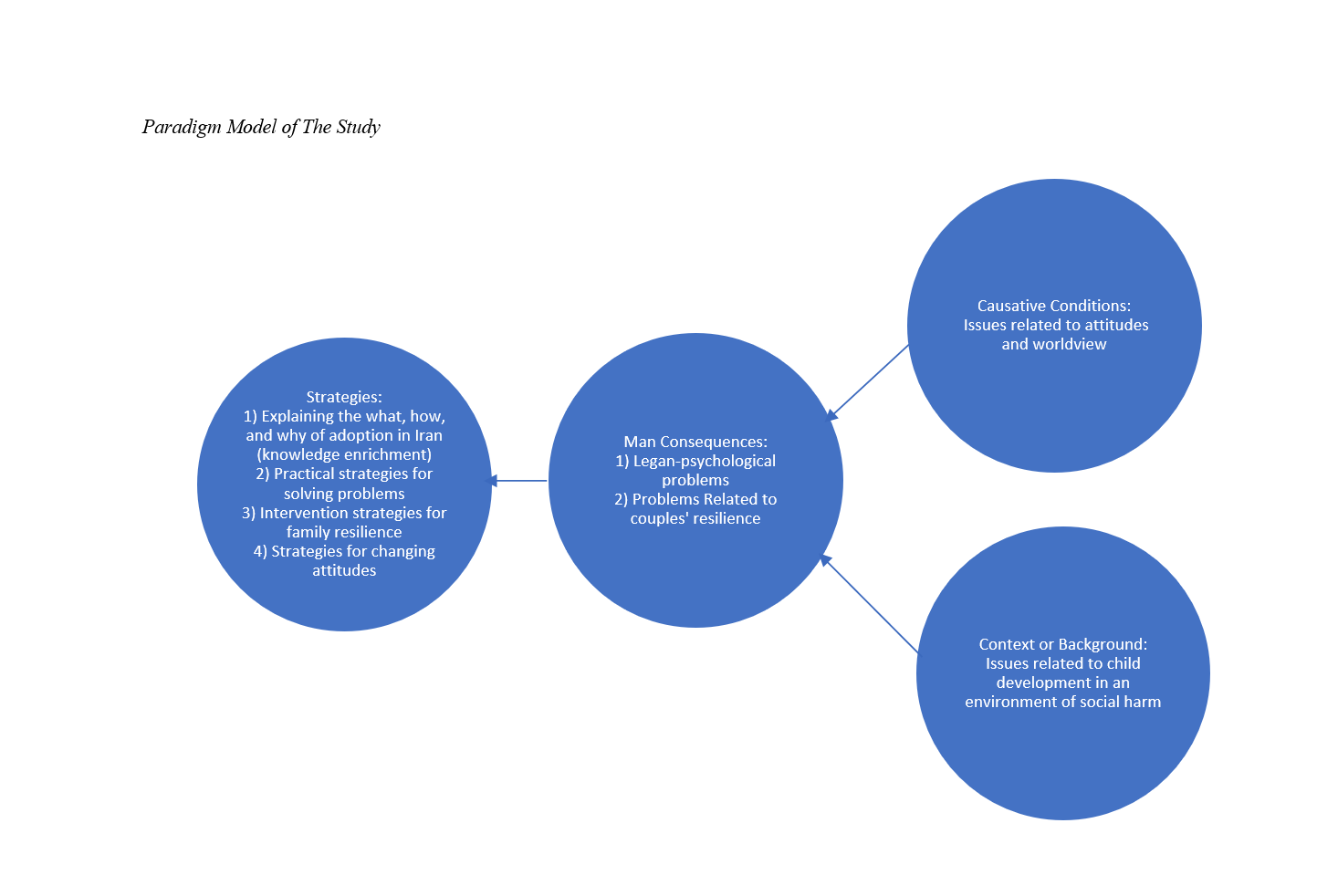Identification of Psychological Issues in Adoptive Families in Iran and Proposing Solutions for Their Adaptation
Keywords:
Psychology, Adoptive Families Issues, Adaptation Solutions, Iranian Adoptive FamiliesAbstract
Objective: The need for children and adolescents to have a space conducive to growth has led to the widespread selection of adoption as a means to complete a family. With the hope of enhancing the well-being of the child and the family and aimed at identifying the psychological issues of Iranian adoptive families and proposing solutions for their adaptation, this study was conducted.
Methods and Materials: The research method, in both stages, was qualitative and followed the grounded theory approach according to Strauss and Corbin. Initially, to find the problems of adoptive families, an interview was conducted with a representative from each of the 13 families in 2022. In the next stage, the results of the first phase of the research were presented to experts, and their proposed solutions were obtained. Data analysis was performed using maxqda2020 software. Ethical considerations were observed at all stages.
Findings: In the first phase of problem identification, 4 concepts emerged: issues related to child development in an environment of social harm, legal-psychological problems, issues related to attitudes, and problems associated with the resilience of couples. From the next stage, 4 groups of adaptation solutions were extracted, including explaining the what, how, and why of adoption in Iran (knowledge enrichment), practical solutions to solve problems, intervention strategies for family resilience, and attitude change strategies. Problems related to attitudes and worldviews were the causal conditions for other issues. In the end, the final model was presented. Knowledge enrichment, correction and improvement of attitudes, increasing parental resilience, making legal reforms, and removing executive obstacles should be prioritized in this field.
Conclusion: Conditions should be facilitated so that volunteer parents can share their experiences and researchers can conduct scientific studies in this field. This facilitates better decision-making and creates more confidence for families with a suitable mental background to start this journey. Additionally, the need for psychological support from welfare for families should be considered in planning.
Downloads

Downloads
Additional Files
Published
Issue
Section
License
Copyright (c) 2024 Nafiseh Heshmati Molaie (Author); Roya Koochak Entezar (Corresponding Author); Fatemeh Golshani (Author)

This work is licensed under a Creative Commons Attribution-NonCommercial 4.0 International License.














